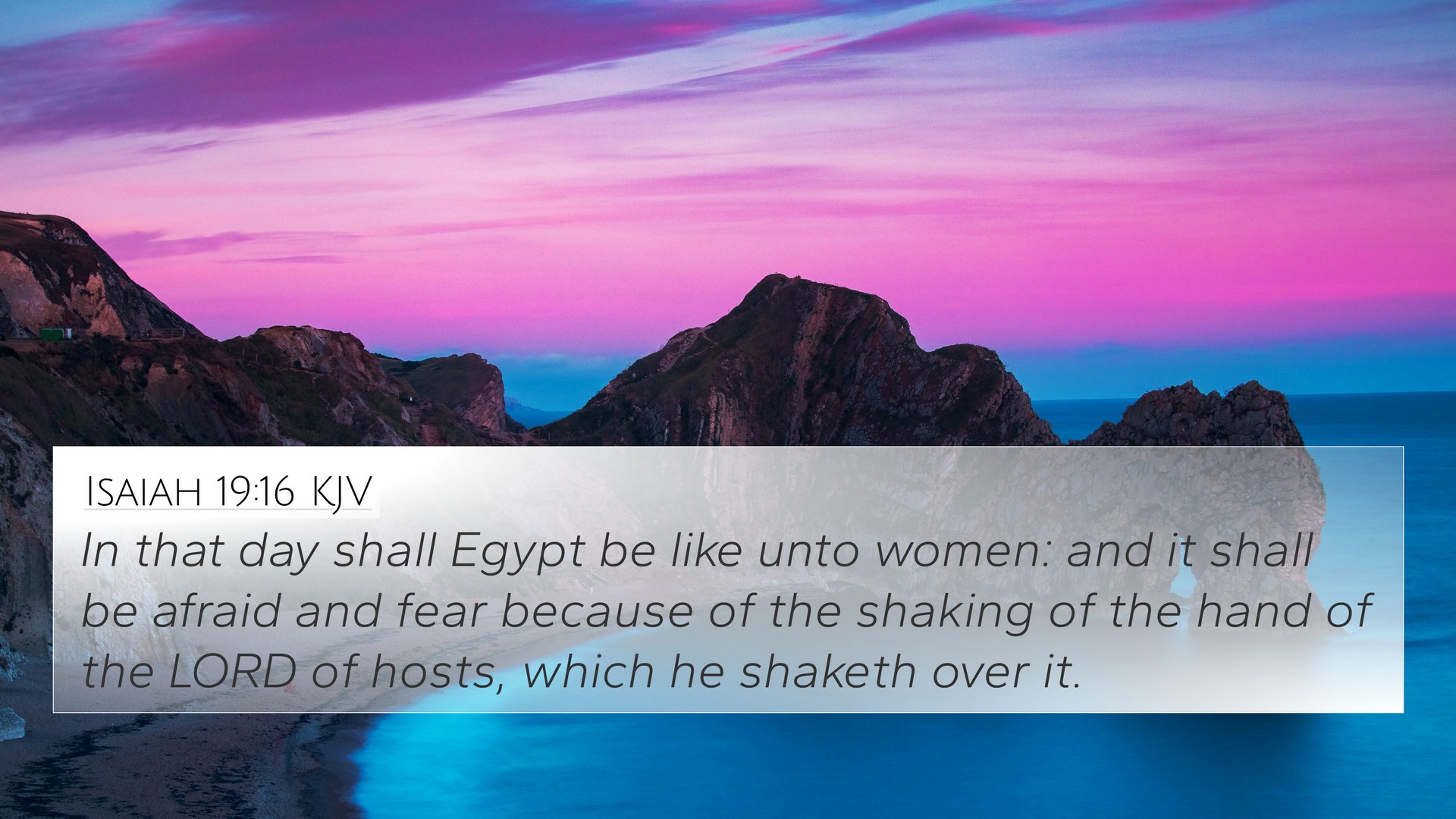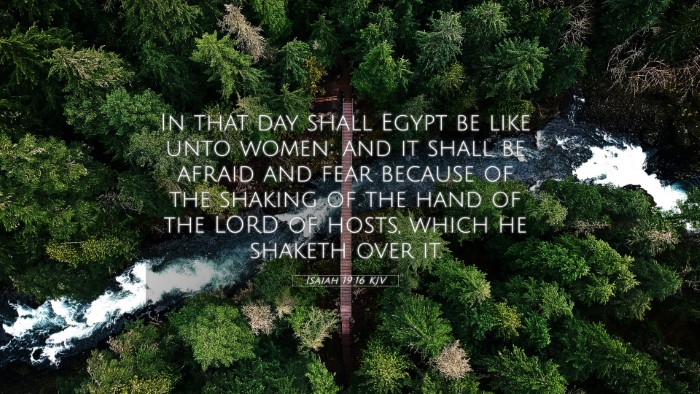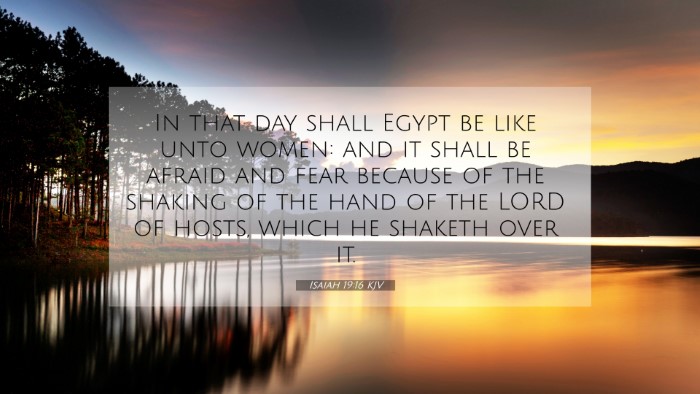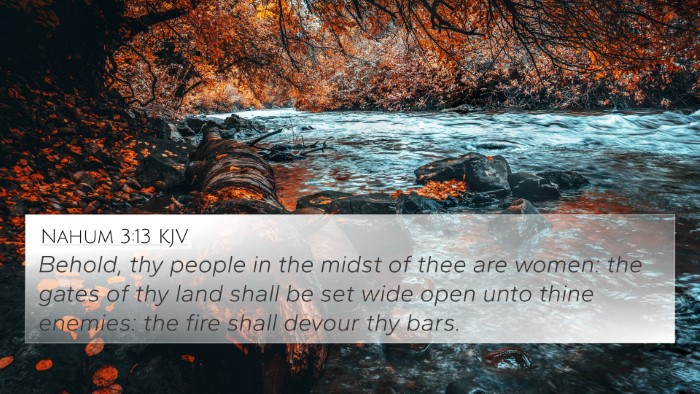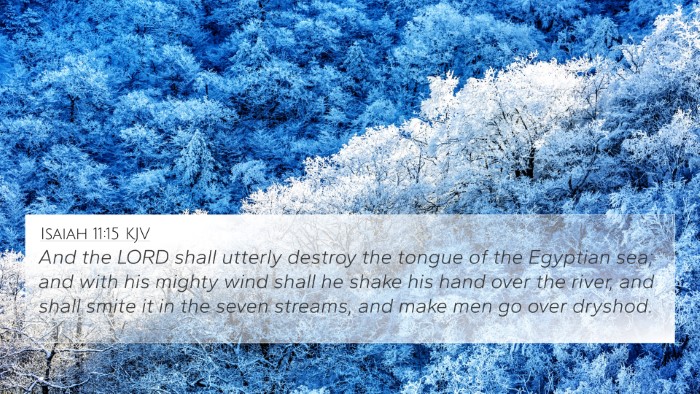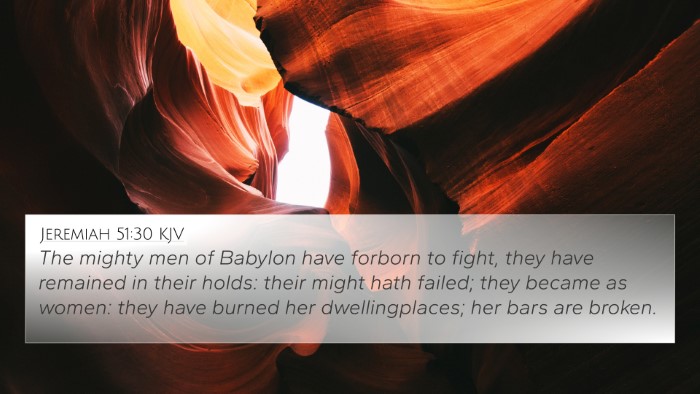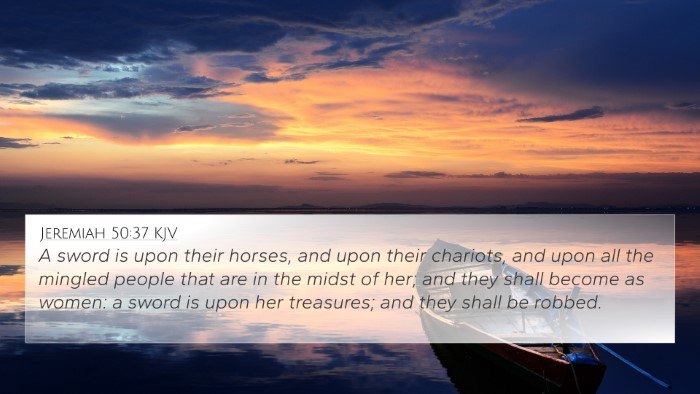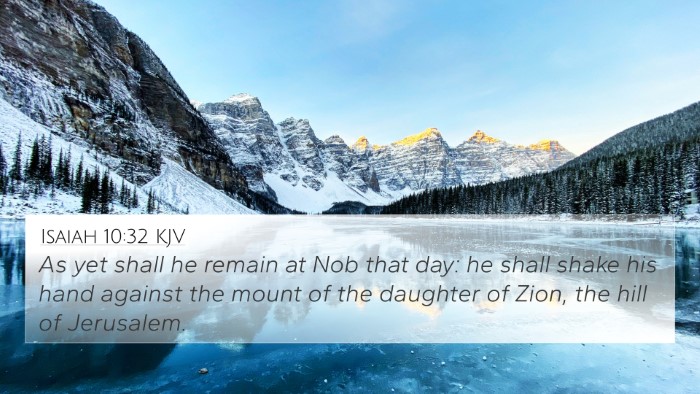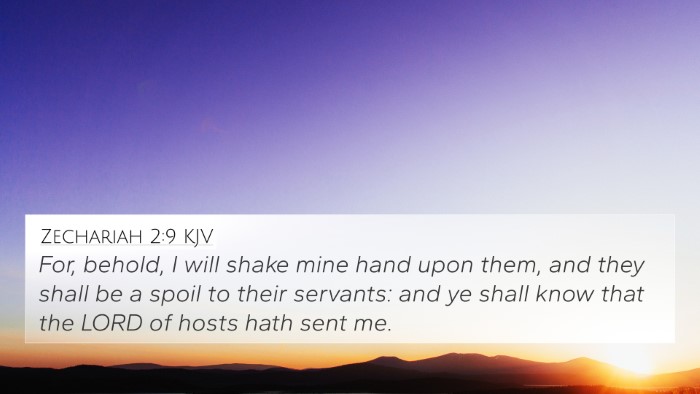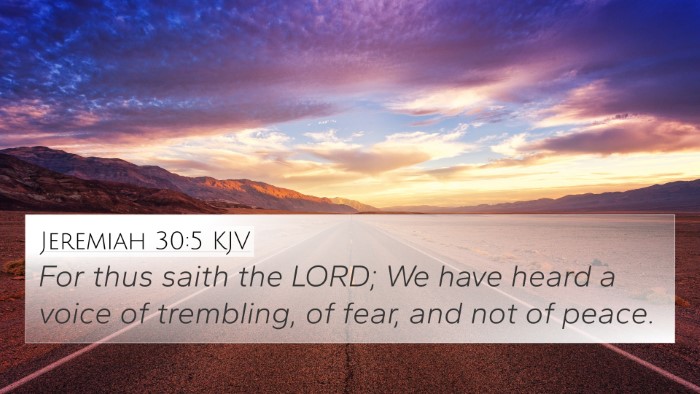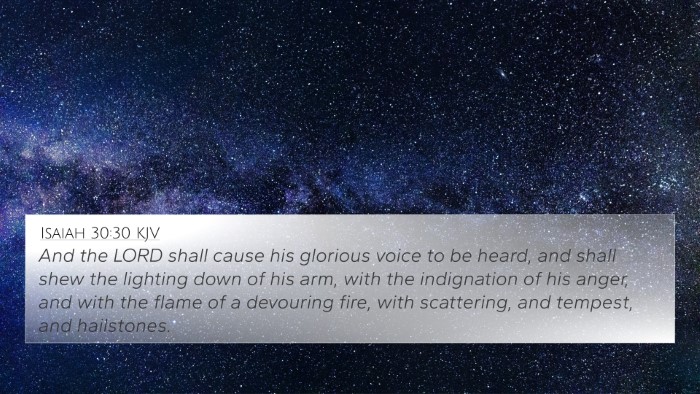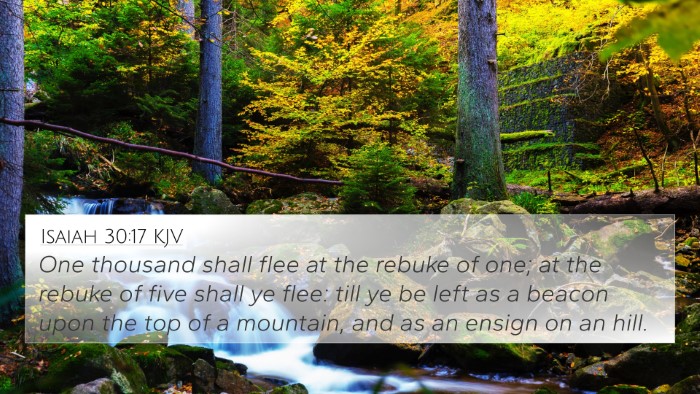Understanding Isaiah 19:16
Isaiah 19:16 states: "In that day the Egyptians will become like women, and tremble with fear because of the waving hand of the Lord of hosts, which He waves over them."
This verse illustrates the transformation of Egypt's strength and power into fear and vulnerability under the divine influence of God. Through the lens of various public domain commentaries, we can derive deeper meanings and insights.
Summary of Commentary Insights
- Matthew Henry: Henry emphasizes the total submission of Egypt before the Lord. He suggests that the metaphor of becoming like women signifies a loss of courage and strength, highlighting how God can humble even the mightiest of nations.
- Albert Barnes: Barnes draws attention to the context, explaining that this verse foreshadows a time when Egypt would experience fear and dismay as a direct result of the Lord's fierce intervention. He notes that the “waving hand” symbolizes divine judgment and authority.
- Adam Clarke: Clarke provides an interpretation of the cultural implications of Egypt’s humiliation, connecting it with other biblical narratives where God’s power is shown to subdue nations. He also notes the significance of “trembling” as a deep emotional response to encountering God’s might.
Thematic Connections and Cross References
Isaiah 19:16 offers an opportunity for thematic cross-referencing within Scripture. Here are some notable Bible verses that are related to this passage:
- Isaiah 10:34: This verse speaks of the Lord cutting down the mighty trees, symbolizing God’s sovereignty over powerful nations.
- Jeremiah 46:5: Jeremiah describes the fear that seizes the Egyptians before the Lord’s judgment, paralleling the trembling mentioned in Isaiah.
- Exodus 15:16: In the song of Moses, the fear and trembling of nations in response to God’s power is highlighted, mirroring the theme of divine authority.
- Revelation 6:15-17: This passage depicts the kings of the earth in fear before God's great day of judgment, similar to the Egyptians in Isaiah.
- Psalm 68:1-2: The psalmist writes about God rising up and scattering His enemies, reflecting the same kind of divine intervention described in Isaiah.
- Philippians 2:10-11: The New Testament theme connects as every knee shall bow at the authority of Christ, emphasizing God’s control over all nations.
- Zephaniah 2:15: This verse forewarns of the desolation of nations, further emphasizing God’s sovereignty over Egypt and others.
Tools for Bible Cross-Referencing
To explore the connections between Bible verses further, consider using the following tools and methods.
- Bible Concordance: An invaluable tool for finding words and their occurrences across the Bible.
- Bible Cross-Reference Guide: Provides structured links between verses that have similar themes or messages.
- Cross-Reference Bible Study: Techniques and methods to analyze related verses more cohesively.
- Comprehensive Bible Cross-Reference Materials: Engaging resources to facilitate deeper biblical understanding.
Inter-Biblical Dialogue
Engaging in Bible cross-referencing lays the groundwork for an inter-Biblical dialogue that reveals how the Old Testament themes resonate within the New Testament context. By exploring the connections between various scriptures, believers can gain greater insights into God's overall narrative and His interaction with humanity.
Conclusion
Isaiah 19:16 serves as a powerful reminder of God's authority over nations and individuals alike. The terror that seizes the Egyptians symbolizes a broader spiritual truth—that all powers ultimately bow to the will of God. By utilizing tools for cross-referencing and studying related verses, we can deepen our understanding of this theme and enrich our biblical knowledge.
